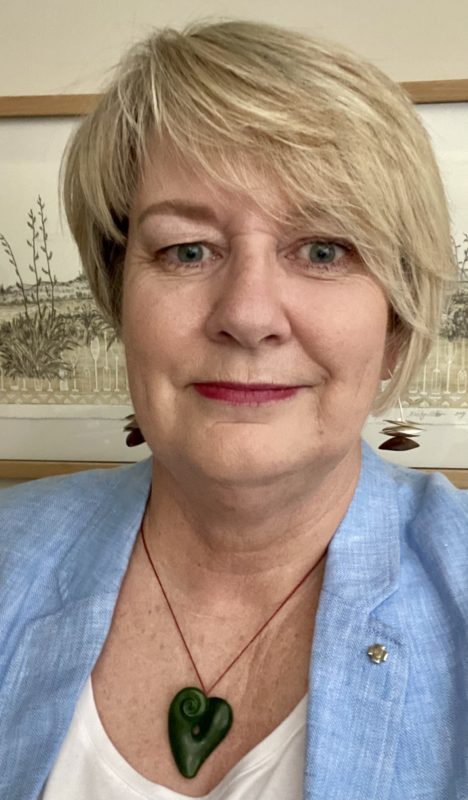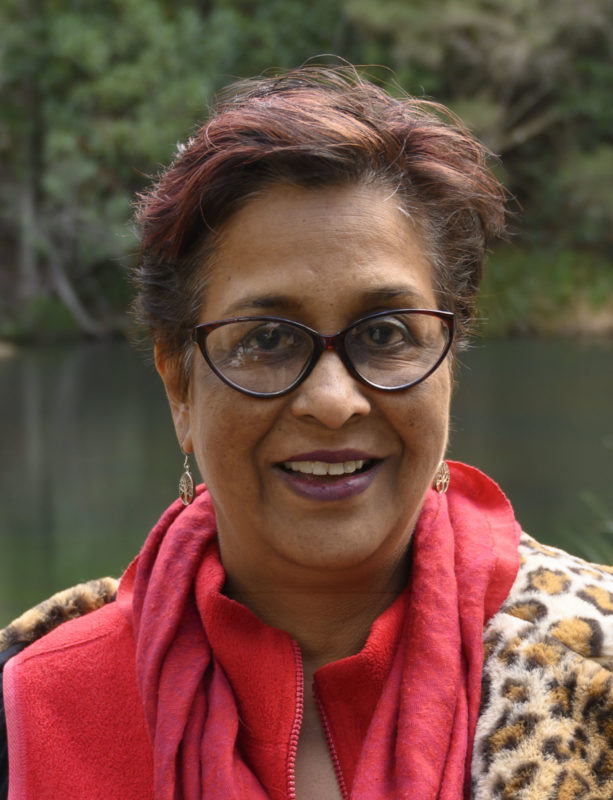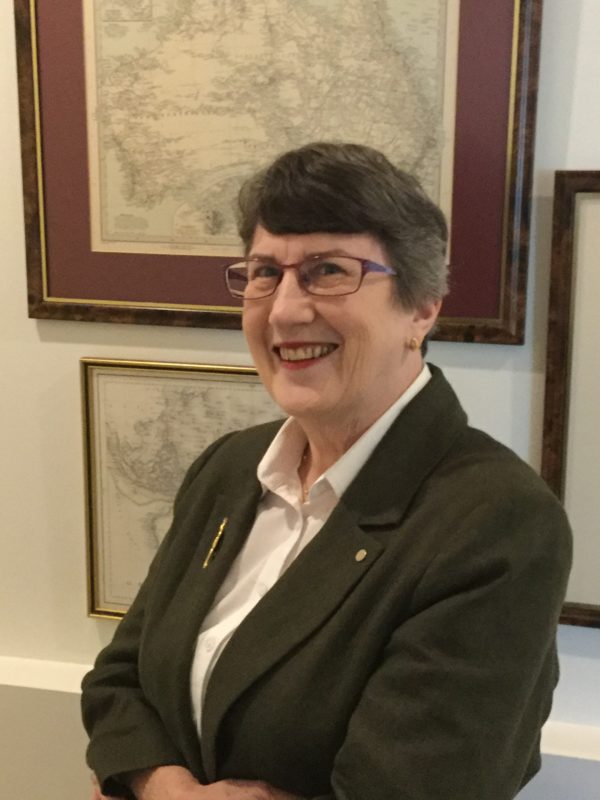For International Women’s Day, HRM highlights three women who have climbed the career ladder to great success, breaking through invisible ceilings at many points along the way.
In keeping with the theme for this year Day, #BreakTheBias, HRM asks these influential and experienced HR professionals to look back on their own journeys navigating gender discrimination, and to suggest steps that organisations can take in the pursuit of gender equality.
Create space for women – Christine Clarke CAHRI
When Christine Clarke CSC (Conspicuous Service Cross) CAHRI was appointed Defence Adviser and Attache for New Zealand, Cook Islands and Chile in 2018 with the Australian Department of Defence, she lamented that there were no women serving in the Cook Islands Police Service Maritime Wing.
Seeking to better understand the community’s cultural context, Clarke met with the Cook Islands’ Police Commissioner, who expressed doubt that women would be interested in joining the Maritime Wing.
He was, however, receptive to Clarke’s suggestion that she speak directly with the female officers.
“It became clear to me that there were a lot of things the women didn’t understand about what it meant to serve on a patrol boat. Many expressed concerns about who would look after their children.”
Clarke calmly allayed their concerns. Importantly, she didn’t push for a policy change, but supported the women to lead the change, in keeping with her personal mantra – ‘hold space, make space, take space’ – when empowering women to embrace new opportunities.
“After making space for them to explore these opportunities, I encouraged them to take the space. They would need to step up and say they wanted to do it.”
Two of the women did just that and are now a critical part of the Maritime Wing.
Outside of Defence, the principles that underpin ‘hold space, make space, take space’ can be applied with similar impact.
Clarke ‘holds space’ by opening doors for women, and ‘makes space’ by sharing knowledge, advocating for others, and making space for them to come through.
She assists women to ‘take space’ by helping them find their voice, particularly those who have stepped into a leadership position for the first time.
“Sometimes, you’ve got to build allegiances to get your point across. Like many women, I’ve had to work through the invisible women’s voice issue, where some people in the room were completely dismissive and would roll their eyes whenever I opened my mouth.”
To tackle this, she enlisted the support of a female ally who helped to back her ideas in meetings. Speaking confidently also furthered Clarke’s progression, informing a key message that she imparts to other women: don’t apologise.
“You won’t ever hear, ‘I’m sorry for interrupting’ coming out of my mouth. Women need to believe they have something valuable to contribute. Say, ‘I have some points to make on that issue’, rather than, ‘I’m sorry for interrupting’. That just gives someone the opportunity to dismiss you.
If you give someone that opportunity, they’ll assume they can do it all the time.”
In an exciting next career step, Clarke was recently appointed Australia’s Ambassador for Women and Girls. Her position will involve advocating for women’s empowerment and working to end violence against women and girls in the Indo-Pacific region.
Gain insights from AHRI’s course, Women in HR Leadership, to move the dial on gender equality.
Book in for the next course on 29 March.
Discrimination overlaps – Menaka Iyengar Cooke FAHRI
After arriving in Australia from India in 1973, and shortly after becoming a single parent, Menaka Iyengar Cooke FAHRI took up a role as an administrative assistant in Sydney.
After quickly realising she was highly capable and confident, her managers threw more tasks her way. Soon, Cooke was doing the equivalent workload of a supervisor, despite not holding the official title.
While she initially embraced this as a learning opportunity, four or five years in she had reached her wits end.
“I was blatantly told, ‘I’m not going to give you a job as a supervisor because you’re a woman,’” says Cooke.
Cooke went on to pursue a Graduate Diploma in Employment Relations at the University of Western Sydney, believing formal education in Australia would fast-track her career. And it did. Shortly after, she became an HR Officer at CRA, now known as Rio Tinto.
“I got there because I was willing to extend myself. If people don’t know what you’re capable of, why will they ever ask you to come forward? A lot of it was just putting myself in front of people and saying, ‘I can do it. Give me a chance.’”
In 1988, she was recruited as the HR Manager at Biotech Australia, where she applied her skills in strategic change management.
After consulting employees and discovering what was important to them, Cooke noticed that staff began to confide in her about their work-related concerns, including salaries, benefits and working conditions.
This prompted Cooke to attain a masters in commerce and then in psychotherapy, leading her to go on to support women, people with family responsibilities, and individuals from culturally and linguistically diverse (CALD) backgrounds.
Approaching discriminatory behaviour from a place of compassion forms the basis of Cooke’s parting advice to HR.
“Most organisations are process-driven when responding to discrimination. They pull out the laws and policies. We need that, but to prevent sexual harassment, we also need to hear the stories of those who have been impacted.”
She adds that leaders need to take a tough stance to stamp out discriminatory behaviour and bullying, drawing on a personal example to demonstrate this in action.
Around 10 years ago, she worked with a CEO who set leadership standards in performance reviews and discussions about promotions and remuneration.
“When the CEO and I sat down to review staff for promotion or succession planning, he would ask me what I thought of the person.
“I would discuss any reports of the person bullying or being domineering, and this would affect their leadership track.
“Leaders need to let employees know if they’re not up to standard and strive to do better.”
Cooke continues to work as a coach to business leaders and runs a psychotherapy practice for CALD clients.
Find your allies – Meryl Stanton FAHRI
In the mid 1990s to 2000, Meryl Stanton PSM (Public Service Medal) FAHRI worked as Comcare’s CEO when many stress-related workers’ compensation claims were caused by gender bias or sexual misconduct.
“There was often an inclination on the part of the assessors to be more dismissive of those cases,” says Stanton. “We put a lot of effort into educating the assessors and employees about the seriousness of sexual misconduct and what was acceptable workplace behaviour.”
While creating change for other working women, Stanton came up against some of her own gender barriers. When she gave birth to her son in the late 1970s, although maternity leave was available, part-time and flex work were not, leading Stanton to resign from her role as the then Public Service Board’s Chief Psychologist.
She took this break as an opportunity to complete her masters degree, returning to work five years later, by which time flexible work was available, but not for senior staff.
“The changes that have been made in that area are remarkable. They would have made a huge difference to my life back then.”
Now semi-retired, Stanton’s professional standing as an organisational psychologist has stood her in good stead as a mentor.
 She often finds herself imparting advice to women experiencing gender discrimination today, such as:
She often finds herself imparting advice to women experiencing gender discrimination today, such as:
- Pick your battles, preferably one at a time: “You will drag yourself into a pit very quickly if you try to fight every battle.”
- Find allies and be patient: “If your brilliant idea is not being listened to, or hasn’t yet reached its time, tuck it away and bring it out again later once you’ve got more support on board. Play a long game.”
- Know your people, and don’t fight things on your own: “Your people are your strength – your peers, subordinates and superiors are often dealing with exactly the same problems as you are.”
Her main advice for HR leaders seeking to break gender biases is to know the ins and outs of their employer’s business.
“If you see a problem that relates to gender, contextualise it. There is no substitute for knowing the business, your audience and what’s going to push their buttons.”
Learn how to be a strong ally
For many women, the goal might be having their own voice heard at the table. But this should be part of a collective effort to amplify all women’s voices.
Women need to make a point of actively supporting other women, says Clarke.
The same goes for men.
“This is not a competitive game, it’s a supportive game. Make kindness your superpower. If you see something isn’t right, say something. The theme for IWD is ‘break the bias’, so don’t be part of the bias.”
This article first appeared in the March 2022 edition of HRM magazine.


What a wonderful achievement. Go Menaka
Excellent advice. Terrrific acheivements